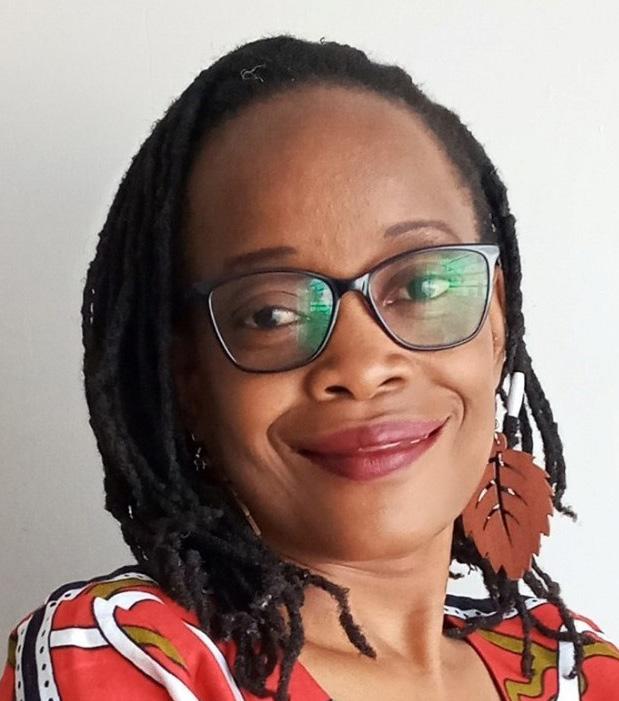
5 minute read
Against all odds: Meet Eunice Achieng Owino, The Sickle Cell Champion
By Melody Ajiambo
Eunice Achieng Owino is one bubbly soul. When you see her smile as she expresses herself, it is hard to imagine that she is living with Sickle Cell Disease (SCD).
Advertisement
SCD is an inherited red blood cell disorder. With SCD, the hemoglobin (a protein that carries oxygen in the red blood cell) is abnormal, which causes the red blood cells to become hard, and sticky and look like a C-shaped farm tool called a sickle.
These sickle cells, unlike the round healthy red blood cells, can cause serious health complications; when they travel through small blood vessels, their shape causes them to get stuck and clog the blood flow. Moreover, sickle cells die early, which causes a constant shortage of red blood cells. The result is anemia and immense pain.
For Ms. Eunice, the journey has not been easy. In October 1981, at the tender age of eight months, she was diagnosed with SCD type “SS” at Kenyatta National Hospital (KNH). Eunice took time to talk to Newsline about her experience living with the disease.
While recounting her story, Eunice expressed how grateful she was that her family had been very supportive. Being the fourth born in a family of five children, she had seen her loving and caring family stand by her side unwaveringly. With teary eyes, she recounted how her mother would travel long distances just to get her to the Hospital for her clinic appointments.
When she turned 13 years, Eunice began to understand her condition. She also began to take care of herself better, and manage the disease by keeping warm during cold seasons, drinking enough water, eating vegetables, and fruits, taking medication at the right time and going for her regular checkups after every three months. She tells us that this is how she has managed to live with the disease to date.
According to Dr. Kibet Shikuku, a lecturer at the University of Nairobi’s Human Pathology, Hematology, and Blood Transfusion Unit, a fetus can be diagnosed with sickle cell disease under the right circumstances. Dr. Kibet currently works with the Paediatric Unit at KNH, treating children with hematological disorders, including SCD.
Expounding on the subject, Dr. Kibet explained that Sickle Cell Disease is a genetic condition caused by a mutation in hemoglobin. While it is prevalent in some parts of the country, like the Western and Nyanza regions, SCD can affect anyone who inherits the hemoglobin ‘S’ from one parent and another gene that codes for another abnormal type of hemoglobin from the other parent.
The most common and often severe type of the disease is the ‘hbSS’ (the one Eunice has) and is inherited if both parents have hemoglobin ‘S’. Dr. Kibet says that the only way to prevent the disease is to get tested early to determine if both parties have the dormant genetic condition, and avoid conceiving children together. There is a lot of stigma surrounding Sickle Cell Disease, but Eunice has found a way to weather the storm. “I live my life as normal as any other person. I lost my father when I was 19 years old and most people thought I would get very sick, but I thank God I never had any crisis at that time,” she said.
Unfortunately, in 2003, Eunice began feeling pain in the hip. Upon check-up, a crack was discovered on her hip joint. To reduce or stop the pain and maintain joint mobility, she would; elevate and rest the joint, go for physical therapy, and take pain relief medicine. In 2014, however, she underwent total hip replacement surgery. This was necessitated by Avascular Necrosis (AVN), commonly known as aseptic bone necrosis- the death of the bone tissue due to lack of enough blood and oxygen supply. The surgery left her with some scars; now she walks with a slight limp.
Eunice recounted how she has experienced other challenges, like discrimination at the workplace, school, among friends, and from some relatives who don’t understand her situation. Also, not being able to have a romantic relationship because of this lifelong condition.
“My experience as a person living with SCD led me to become a Sickle Cell Warrior and a voice for the Sickle Cell Community. Together with other patients, we have formed the Sickle Cell Warriors Association which seeks to advocate and raise awareness of the disease in Kenya by educating the public on the disease. We also share information on how patients can find sustainable medical care and how to care for people living with sickle cell disease. So far, we have done sensitization in a few counties and we hope to reach the entire country,” she tells us.
Eunice is now a sickle cell advocate. She is the Executive Director / Founder of the Sickle Cell Uhuru Trust (SCUT) and SCUT Company which have been in existence for more than 5 years. Both have been registered in Kenya and are working to create awareness of SCD. She is also on the Board of Directors at The Sickle Cell Federation of Kenya.
She explains that SCUT has several activities which include;
• Monthly support group meetings
• Home and hospital visits to patients
• Fun days where the ‘warriors’ meet, greet and have fun, both in Nairobi and other counties
• Training and empowering warriors through a partnership with Google to train adult sickle cell patients on how to generate income through Google
• Collaborating with other sickle cell organizations aimed at creating awareness of sickle cell disease. SCUT also played a role in the establishment of the Sickle Cell Federation of Kenya, which is the umbrella body of sickle cell organizations in Kenya
Eunice laughs as she shares her daily motto with us, "Live a day at a time". Sickle Cell is not a death sentence, enjoy your life and find what makes you happy,” she concluded.










